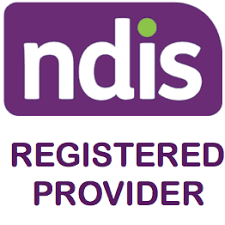Apps
Defining impulsivity
Impulsivity involves the individual reacting rapidly to internal or external stimuli without planning, forethought or regard to the consequences to the self or others (Kanten, 2018; Moeller, 2001).
Impulsivity as a part of normal development
As part of normal development, most children have times when they act or say something or do something without thinking. It is important to note that depending on the circumstance, impulsive behaviour can be beneficial or detrimental (Winstanley, Eagle & Robbins, 2006). For example, Ingrid is a fifteen-year-old teenager. She arrived at her friend’s birthday pool party with her backpack containing her phone, her friend’s birthday present and a change of clothes. Before she could even put her backpack down she noticed her friend’s younger sister struggling in the pool. Without even thinking about her belongings in the backpack she straightaway jumped into the pool with her backpack to rescue the little girl. Whilst all the items in her backpack were soaked, this example highlights how her impulsive action resulted in a positive outcome.
When Impulsivity becomes a behaviour of concern
Whilst most children over time learn how to calm their body when instructed to, or are required to stop as children mature, they develop a range of skills and abilities supported by adult guidance which help them develop how to better control their impulses. However, for some children the various abilities that contribute to the development of impulse control are compromised which results in high levels of impulsivity persisting.
High levels of impulsivity are associated with Attention Deficit Hyperactivity Disorder (ADHD), Traumatic Brain Injury, Fragile-X syndrome, substance use disorder, oppositional defiant disorder, conduct disorder, intermittent explosive disorder, kleptomania, pyromania and eating disorders (APA, 2013; Lozano-Madrid et al, 2020; Luman, Tripp & Scheres, 2010; Robbins et al., 2012; Weafer, Michell & de Wit, 2015; White et al., 1994).
Impact of impulsivity
When impulsive behaviour becomes persistent, severe and chronic, it can cause negative consequences for the child and everyone else involved. Dealing with the consequences of the child constantly behaving and communicating without thinking tests everyone’s patience. It often results in people feeling frustrated, annoyed and stressed as the child does not appear to learn from consequences and no matter how many times they are given lectures it is as if it just goes out the other ear. The child’s impulsive behaviour can result in the child experiencing social rejection, failure and isolation. The climate of the context (e.g. childcare, preschool, kindergarten, school, disability support and youth service) can change dramatically. A considerable amount of time and energy can be spent on the child showing the impulsive behaviour, which can have a deleterious effect on the quality of the educational experience for all children. Research consistently shows that managing behaviour is linked to staff experiencing high levels of stress, burnout, and job dissatisfaction.
Hence, impulsive behaviour affects everyone involved and the child who is impulsive requires necessary help to learn positive ways of behaving and managing their emotions.
Positive support resources for impulsivity

Positive Behaviour Support (PBS) focuses on evidence-based strategies and person-centred supports that address the needs of the individual and the underlying causes of s of concern, to enhance the quality of life for both the individual and those that support them.
PBS recognises that there is no single cause for impulsive behaviour . It is a complex that is a product of the interaction between multiple factors contributing to its development and persistence.
It is like the tip of the iceberg so it is essential to look beneath the surface to work out the why before we can address the problem. Behaviour Help resources are at hand.
Get Started with Behaviour Help App
Assess-manage-prevent behaviours of concern efficiently and effectively with the Behaviour Help App.
Download this free PDF guide
The forms contained in this pdf booklet are from the I for Impulsivity: Positive Behaviour Support guide that can be used as part of the process of developing a PBS plan.
Get Started with Behaviour Help App
Assess-manage-prevent behaviours of concern efficiently and effectively with the Behaviour Help App.



